Everest Base Camp Trek Cost 2025: Complete Budget Guide & Essential Information
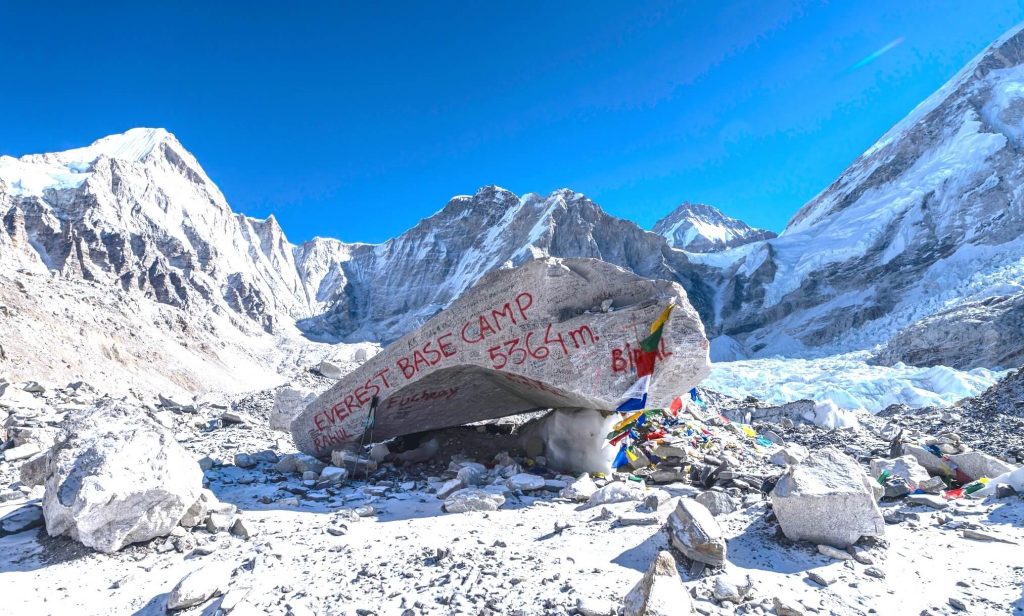
Planning your dream journey to Everest Base Camp in 2025? Understanding the true cost of this iconic Everest Base Camp trek is crucial for proper preparation. Whether you’re dreaming of standing at the foot of the world’s tallest mountain or questioning “how high is Everest Base Camp,” this comprehensive guide breaks down everything you need to know about the Everest Base Camp trek cost.
The EBC trek in Nepal remains one of the most sought-after adventures in the world, but costs can vary dramatically depending on your choices. From budget-conscious solo treks starting at $1,200 to luxury guided experiences reaching $5,000, we’ll help you understand exactly what you’re paying for and how to make the most of your investment.

Quick Cost Overview: Everest Base Camp Trek 2025
Before diving into details, here’s what you can expect to invest in your Everest Base Camp trek:
- Budget Solo Trek: $1,200 – $1,600
- Standard Guided Trek: $1,600 – $2,400
- Premium Guided Trek: $2,400 – $3,500
- Luxury Trek Experience: $3,500 – $5,000
- EBC trek return by helicopter: Add $1,500 – $2,000
Understanding Everest Base Camp: Elevation and Challenge
How High is Everest Base Camp?
The Mt Everest Base Camp elevation stands at 5,364 meters (17,598 feet) above sea level, making it a significant high-altitude challenge. To put this in perspective, you’ll start your journey at 2,800 meters (9,200 feet) in Lukla and ascend to the peak elevation of 5,364 meters at Everest Base Camp.
This dramatic altitude gain is one of the primary factors affecting both cost and difficulty. The thin air and reduced oxygen levels at this elevation require careful acclimatization, extending your trek duration and impacting the overall Everest Base Camp trek cost.
How Difficult is the EBC Trek?
The difficulty level ranges from moderate to challenging, with the main EBC trail in good condition but the initial altitude jump to Lukla presents significant challenges. The EBC trek in Nepal difficulty stems from:
- Altitude challenges: Rapid elevation gain requiring acclimatization days
- Physical demands: 12-18 days of continuous trekking
- Weather conditions: Unpredictable mountain weather
- Technical terrain: Rocky paths, suspension bridges, and glacier moraines
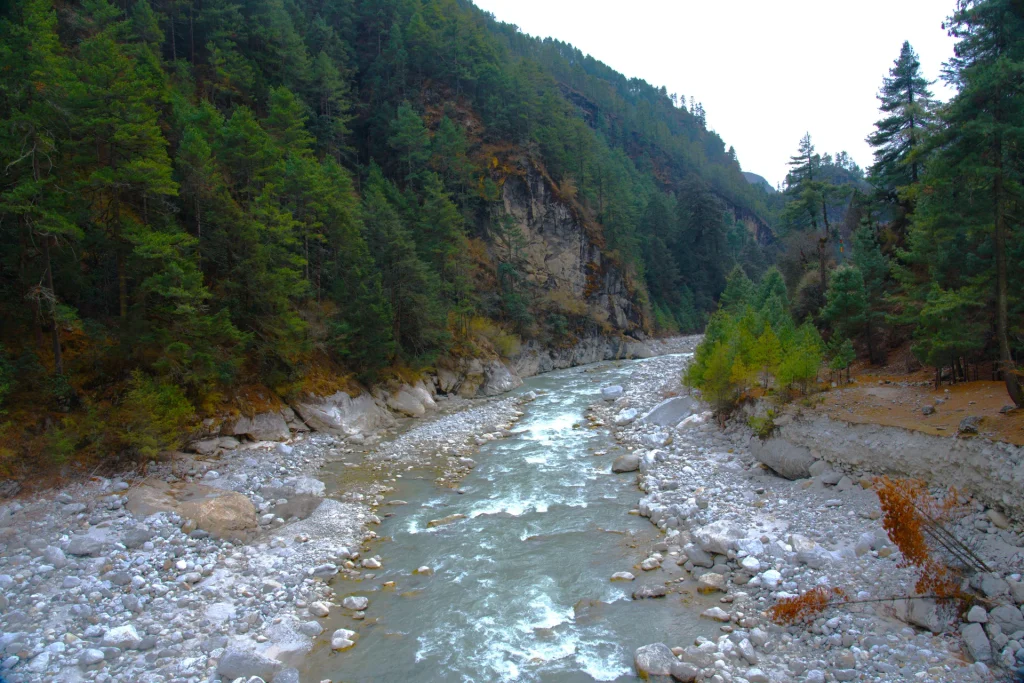
Complete Everest Base Camp Trek Cost Breakdown 2025
| Cost Category | Budget Range (USD) | Notes |
| Flights (Kathmandu-Lukla) | $380-500 round-trip | Weather delays common |
| Permits & Entry Fees | $50-60 | Mandatory for all trekkers |
| Guide Services | $30-50/day | Highly recommended |
| Porter Services | $20-30/day | Optional but helpful |
| Tea House Accommodation | $5-40/night | Price increases with altitude |
| Food & Beverages | $20-60/day | Western food costs more |
| Gear Rental | $150-350 total | Quality varies significantly |
| Travel Insurance | $100-200 | Essential for high altitude |
| Helicopter Return | $1,500-2,000 | Popular time-saving option |
| Total Estimated Cost | $1,200-5,000 | Depends on trek style |
Essential Flight Costs: Gateway to the Himalayas
The flight from Kathmandu to Lukla represents one of the largest single expenses in your Everest Base Camp trek cost. These flights to what’s considered the world’s most dangerous airport cost between $380-500 round-trip in 2025.
Weather delays are incredibly common, so budget for potential extra nights in Kathmandu or Lukla. For those seeking the ultimate luxury, the EBC trek return by helicopter option costs an additional $1,500-2,000 but saves 2-3 days of trekking back.
Permits and Entry Fees (2025)
Every trekker needs two essential permits for the EBC trek in Nepal:
- Sagarmatha National Park Entry Permit: $30
- Khumbu Pasang Lhamu Rural Municipality Permit: $20
- Total Permit Cost: $50
These permits contribute to local conservation efforts and community development, making them a worthwhile investment in the region’s sustainability.
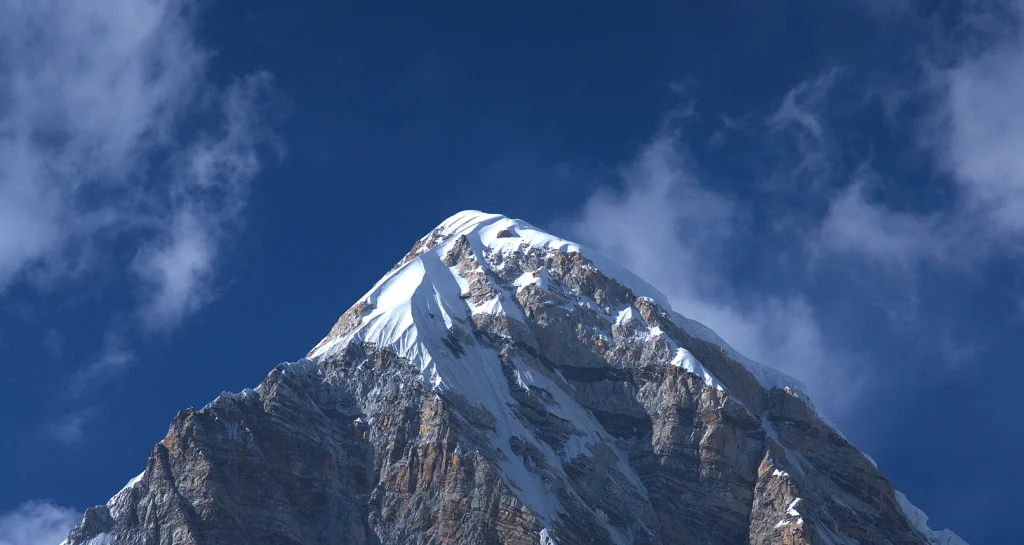
Guide and Porter Services: Your Mountain Support Team
While solo trekking is possible, hiring professional guides and porters significantly enhances safety and supports the local economy. Here’s what to expect for guide and porter costs:
- Experienced Sherpa guide: $30-50 per day
- Local porter: $20-30 per day
- Porter-guide combination: $35-45 per day
- Tips (customary): $5-15 per day total
Given the challenges of high altitude and the Mt Everest Base Camp elevation of 5,364 meters, professional guides provide invaluable safety support and cultural insights that justify the additional cost.
Accommodation: Tea Houses Along the EBC Route
Tea house accommodation costs increase dramatically with altitude due to the logistics of transporting supplies to remote locations. Here’s the breakdown for different elevation zones:
- Lower elevations (Lukla to Namche): $5-15 per night
- Mid-elevations (Namche to Tengboche): $10-25 per night
- Higher elevations (Dingboche to EBC): $15-40 per night
- Premium lodges: $40-80 per night
The accommodation quality varies significantly, with basic tea houses offering simple rooms and shared bathrooms, while premium lodges provide private bathrooms, heating, and better meals.
Food and Beverages: Fueling Your EBC Trek
Food costs represent a significant portion of your daily Everest Base Camp trek cost. Traditional Nepali meals like Dal Bhat offer the best value, while Western food comes at a premium:
- Dal Bhat (traditional meal): $8-15
- Western breakfast: $5-12
- Lunch items: $6-18
- Dinner: $10-25
- Hot beverages: $2-5
- Daily food budget: $20-60 per day
Prices increase significantly with altitude, so expect to pay premium prices for meals as you approach the Mt Everest Base Camp elevation of 5,364 meters.

EBC Trek Return by Helicopter: The Ultimate Upgrade
The EBC trek return by helicopter has become increasingly popular among trekkers who want to save time and experience the Himalayas from a unique aerial perspective. This luxury option significantly impacts your total Everest Base Camp trek cost but offers unparalleled benefits:
- Helicopter flight cost: $1,500-2,000 per person
- Time saved: 2-3 days of trekking back
- Aerial mountain views: Spectacular photography opportunities
- Comfort factor: Avoid tired legs on the return journey
- Weather dependency: Flights are subject to weather conditions
Many trekkers find the helicopter return worth the extra investment, especially those with limited vacation time or who want to experience the EBC trek in Nepal from both ground and aerial perspectives.
Hidden Costs and Additional Expenses
Beyond the basic Everest Base Camp trek cost, several hidden expenses can quickly add up. Budget for these additional costs to avoid surprises:
- Device charging: $2-5 per device (limited electricity at high altitude)
- WiFi access: $3-8 per day (spotty connectivity)
- Hot showers: $3-8 per shower (luxury at high altitude)
- Bottled water: $1-4 per bottle (price increases with altitude)
- Laundry service: $3-6 per kilogram
- Satellite phone calls: $3-5 per minute
These comfort expenses can easily add $200-500 to your total trip cost, but they significantly enhance comfort during your EBC trek in Nepal adventure.
Solo vs Guided Trek: Cost and Safety Analysis
| Factor | Solo Trek | Guided Trek |
| Total Cost (2025) | $1,200 – $1,800 | $1,800 – $3,500 |
| Safety Level | Higher risk at Mt Everest Base Camp elevation | Professional safety support |
| Navigation | Self-navigation with maps/GPS | Expert route knowledge |
| Cultural Experience | Limited local interaction | Deep cultural insights from guides |
| Flexibility | Complete schedule control | Structured but flexible itinerary |
| Emergency Support | Self-reliant | Professional emergency assistance |
| Language Barriers | Communication challenges | Guide facilitates interactions |
| Ideal For | Experienced hikers, tight budget | First-timers, safety-conscious |
Given the challenges of the Mt Everest Base Camp elevation and the question “how difficult is EBC trek,” most experts recommend guided treks for first-time visitors to ensure safety and maximize the cultural experience.
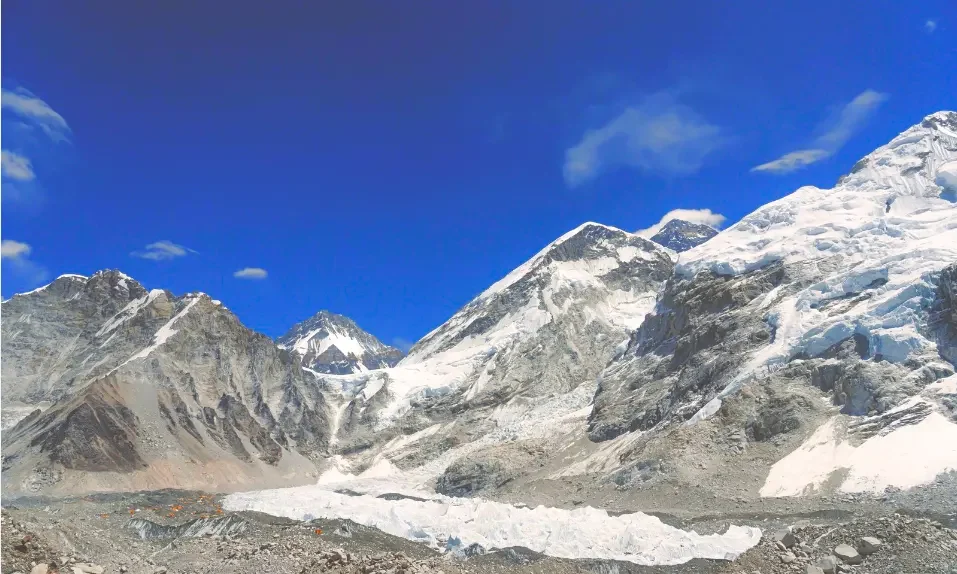
Seasonal Cost Variations and Best Times to Trek
The timing of your Everest Base Camp trek significantly impacts both cost and experience quality. Here’s how seasons affect your budget:
Peak Season (March-May, September-November)
- Flight premiums: +15-25% above base rates
- Accommodation: Standard rates, advance booking essential
- Guide availability: Higher demand, premium rates
- Weather conditions: Clear mountain views, stable weather
Off-Season (June-August, December-February)
- Flight discounts: -10-20% below peak rates
- Accommodation: Potential discounts, better availability
- Weather risks: Monsoon rains or extreme cold
- Trail conditions: More challenging, some lodges closed
While off-season trekking can reduce your Everest Base Camp trek cost by 15-20%, the weather challenges and reduced services make peak season more suitable for most trekkers.
Budget Categories: Choose Your EBC Trek Style
Budget Trekker ($1,200 – $1,800)
- Solo or small group trek
- Basic tea house accommodation
- Local Nepali meals (Dal Bhat focus)
- Minimal gear rental
- Self-guided with maps and GPS
Standard Trekker ($1,800 – $2,800)
- Guided group trek with a professional guide
- Standard accommodation with some upgrades
- Mix of local and Western meal options
- Essential gear rental included
- Porter support available
Premium Trekker ($2,800 – $4,000)
- Small group or private guide
- Better accommodation selection
- Enhanced meal variety and quality
- Quality gear provided
- Comprehensive support services
Luxury Trekker ($4,000 – $5,000+)
- Private guide and dedicated porter team
- Best available lodges and premium rooms
- Gourmet meal options and special dietary needs
- Premium gear and equipment
- EBC trek return by helicopter included
Essential Gear and Equipment Costs
Proper gear is crucial for safely reaching the Mt Everest Base Camp elevation of 5,364 meters. You can either rent or purchase essential items:
- Down jacket: $3-5/day rental or $200-400 purchase
- Sleeping bag (-20°C rated): $2-4/day rental or $300-600 purchase
- Trekking boots: $3-6/day rental or $200-500 purchase
- Trekking poles: $1-2/day rental or $50-150 purchase
- Total gear rental: $150-400 for entire trek
For first-time high-altitude trekkers, renting quality gear in Kathmandu’s Thamel district is often the most cost-effective option. However, if you plan multiple high-altitude adventures, purchasing your own gear provides better quality assurance.
Travel Insurance: Essential Protection
Given the challenges of reaching the Mt Everest Base Camp elevation and answering the question “how difficult is the EBC trek,” comprehensive travel insurance is essential:
- Coverage up to 6,000 meters of elevation
- Emergency helicopter evacuation
- Medical treatment and repatriation
- Trip cancellation/interruption protection
- Cost: $150-300 for comprehensive coverage
Never skimp on insurance when planning your EBC trek in Nepal. The remote location and potential for altitude-related emergencies make comprehensive coverage a non-negotiable investment.
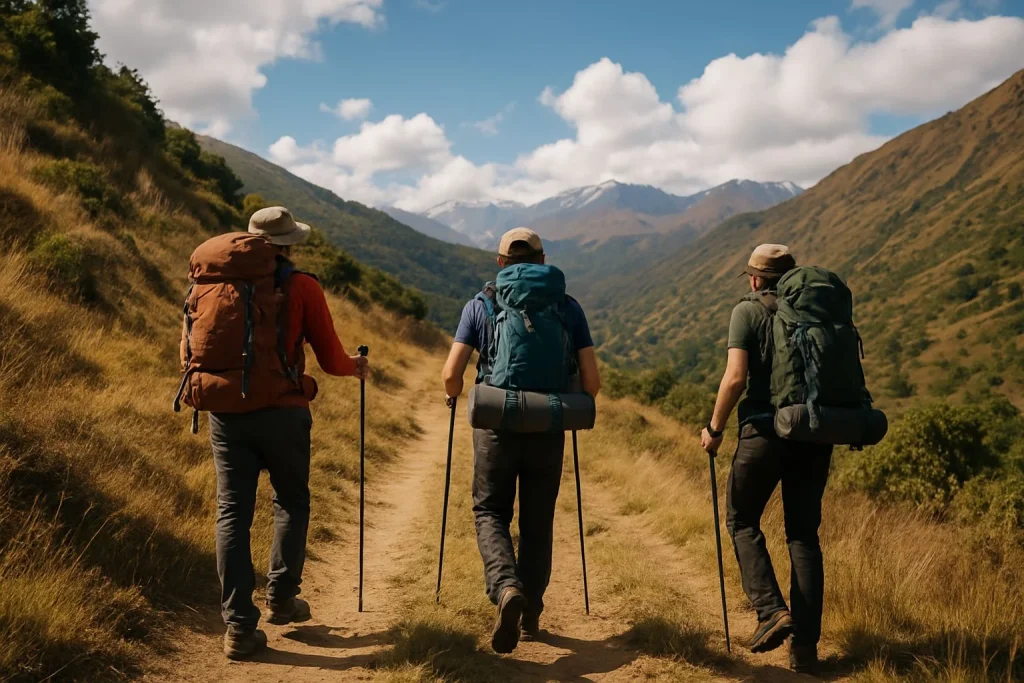
Money-Saving Tips for Your EBC Trek Nepal
Reducing your Everest Base Camp trek cost doesn’t mean compromising on safety or experience quality. Here are proven strategies to optimize your budget:
- Book Early: Secure better rates and ensure availability, especially for flights
- Travel Off-Season: Save 15-20% but prepare for weather challenges
- Group Discounts: Join existing groups or organize your own for better rates
- Smart Gear Strategy: Mix rental and purchase based on future trekking plans
- Local Operators: Work with reputable local companies like Nepal Adventure Trail
- Flexible Dates: Avoid peak holiday periods for better pricing
- Package Deals: All-inclusive packages often offer better value than à la carte
Pre-Trek and Post-Trek Expenses
Don’t forget to budget for expenses before and after your EBC trek in Nepal adventure:
Pre-Trek Expenses in Kathmandu
- Airport transfers: $10-20
- Hotel accommodation: $20-100 per night
- Gear shopping/rental: $150-400
- Meals and sightseeing: $30-60 per day
- Visa fees: $30-125 (depending on nationality)
Post-Trek Recovery and Celebration
- Kathmandu recovery days: $50-150 per day
- Tips for guides/porters: $100-300 total
- Souvenir shopping: $50-500
- Celebration dinner: $30-100
Health and Safety: Preparing for High Altitude
Understanding “how difficult is EBC trek is” goes beyond physical fitness. The Mt Everest Base Camp elevation of 5,364 meters presents unique challenges that require preparation:
Altitude Sickness Prevention
- Gradual ascent: Follow the recommended acclimatization schedule
- Recognize symptoms: Headaches, nausea, dizziness
- Descent plan: Be prepared to descend if symptoms worsen
- Medication: Consult with a doctor about Diamox
Physical Preparation
- Cardiovascular fitness: 3-6 months of regular training
- Hiking experience: Multi-day trek experience recommended
- Strength training: Focus on legs and core stability
- Mental preparation: Research challenges and develop coping strategies

Frequently Asked Questions About EBC Trek Cost
- What is the total Everest Base Camp trek cost in 2025?
The total cost ranges from $1,200 for budget solo treks to $5,000 for luxury guided experiences. Most standard guided treks cost between $1,800-2,800, including flights, permits, accommodation, meals, and guide services.
- How high is Everest Base Camp, and why does elevation affect cost?
Everest Base Camp sits at 5,364 meters (17,598 feet) above sea level. The extreme altitude increases transportation costs for supplies, extends trek duration for acclimatization, and requires specialized gear, all contributing to higher overall costs.
- Is the EBC trek return by helicopter worth the extra cost?
Yes, for many trekkers. The helicopter return costs $1,500-2,000 but saves 2-3 days of trekking, provides spectacular aerial mountain views, and reduces physical strain. It’s particularly valuable for time-constrained travelers or those wanting a unique perspective of the Himalayas.
- How difficult is the EBC trek for beginners?
The EBC trek difficulty is moderate to challenging, especially for beginners. The main challenges are altitude (reaching 5,364 meters), long daily walking distances (6-8 hours), and basic accommodation conditions. Proper preparation, guided support, and gradual acclimatization make it achievable for most fit individuals.
- Can I trek to EBC without a guide in 2025?
Yes, solo trekking is still permitted in the Everest region as of 2025. However, regulations may change, so verify current requirements before departure. Given the altitude challenges and safety considerations, guided treks are recommended for most trekkers.
- What hidden costs should I budget for?
Budget an additional $300-600 for hidden costs, including device charging ($2-5), hot showers ($3-8), WiFi ($3-8/day), bottled water ($1-4), tips for guides/porters ($100-300), and emergency expenses. These comfort items significantly enhance your EBC trek Nepal experience.
- Which trekking company should I choose for guided EBC trek?
Choose reputable local operators with proven safety records and experienced guides. Companies like Nepal Adventure Trail offer comprehensive EBC trekking packages with professional Sherpa guides, safety support, and local expertise.
Conclusion: Your Investment in a Lifetime Experience
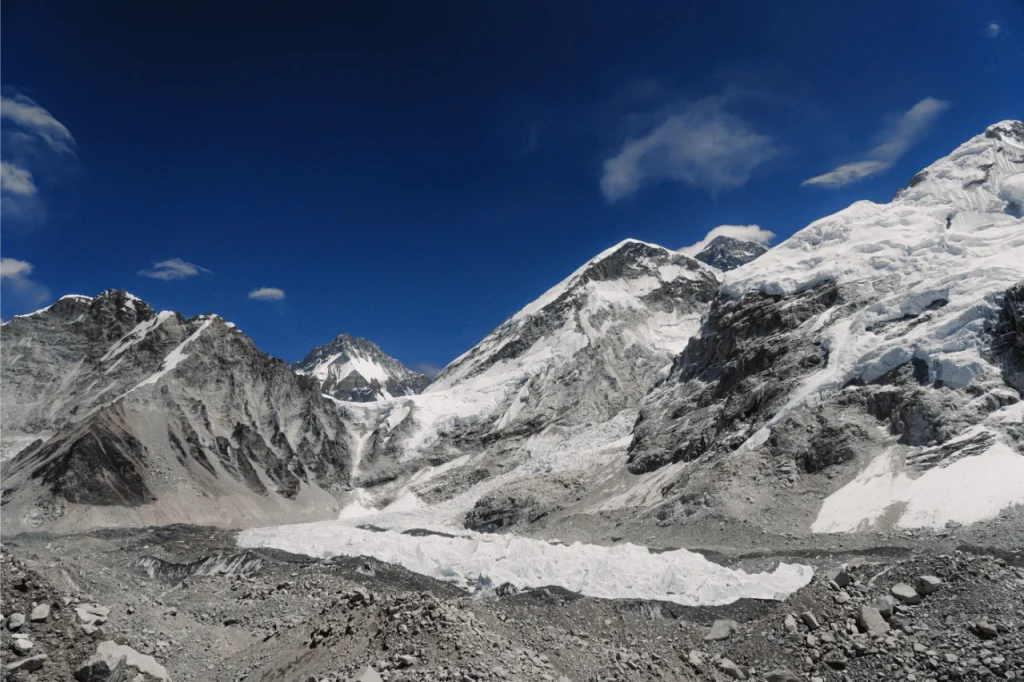
The Everest Base Camp trek cost in 2025 represents more than just financial investment—it’s your ticket to one of the world’s most transformative adventures. Whether you budget $1,200 for a solo journey or $5,000 for a luxury experience, understanding the true costs helps you make informed decisions and avoid unwelcome surprises.
Standing at the Mt Everest Base Camp elevation of 5,364 meters, surrounded by the world’s highest peaks, you’ll understand why millions of adventurers consider this trek worth every dollar invested. The combination of physical challenge, cultural immersion, and natural beauty creates memories that last far beyond the financial commitment.
The question “How difficult is the EBC trek?” has a simple answer: it’s challenging but achievable with proper preparation, realistic budgeting, and professional support. The key is matching your investment to your priorities—safety, comfort, experience quality, and personal goals.
For those considering the EBC trek return by helicopter, the additional $1,500-2,000 investment provides time savings and unique aerial perspectives that many find invaluable. It’s particularly worth considering if you have limited vacation time or want to experience the Himalayas from both ground and sky perspectives.
Remember that the cheapest option isn’t always the best value, especially when dealing with high-altitude challenges and remote mountain conditions. Prioritize safety, choose reputable operators, and invest in proper preparation to ensure your EBC trek in Nepal becomes a triumphant achievement rather than a costly mistake.
The Everest Base Camp trek remains one of the world’s most accessible high-altitude adventures, with options for every budget and experience level. With careful planning and realistic expectations, your investment in this Himalayan journey will provide returns in personal growth, cultural understanding, and unforgettable memories that extend far beyond the trek itself.
Ready to begin your Everest Base Camp trek planning for 2025?
Let experienced local operators handle the logistics while you focus on preparation and anticipation. Professional guides, comprehensive packages, and local expertise ensure your investment in this Himalayan adventure pays dividends in safety, comfort, and unforgettable experiences. Contact trusted operators today to start planning your journey to the roof of the world!
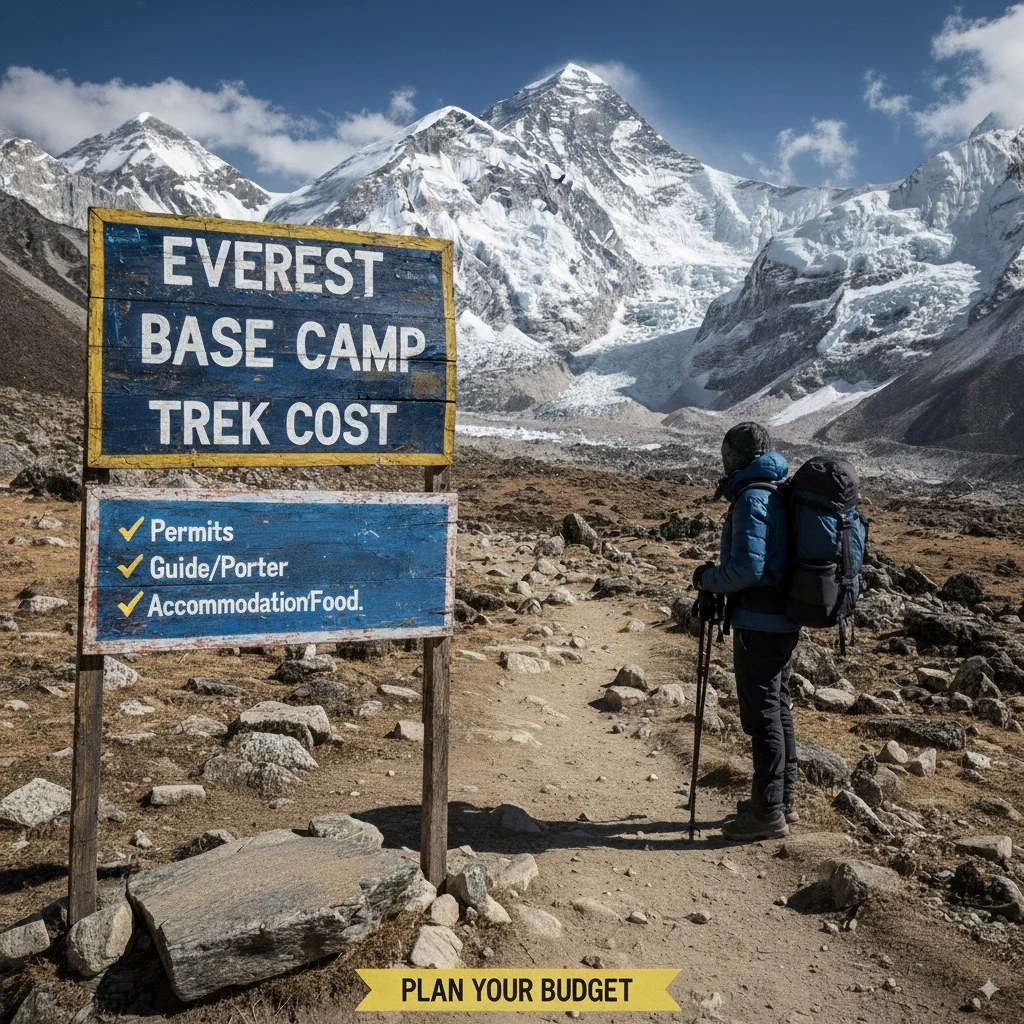
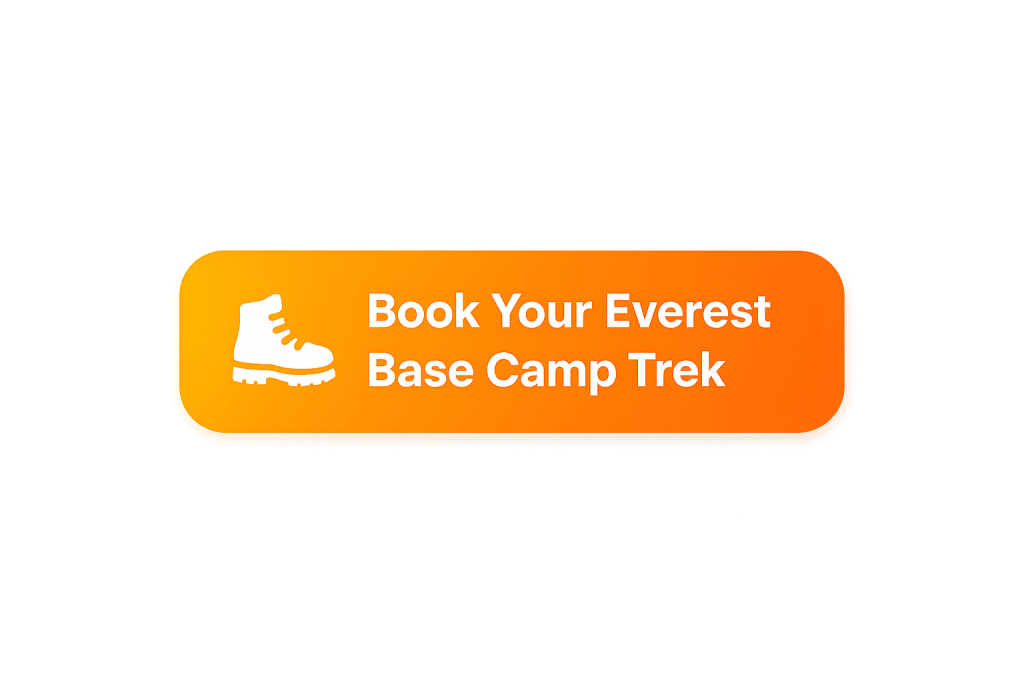
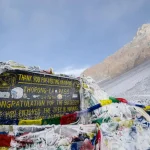
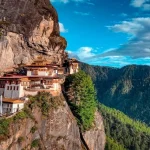
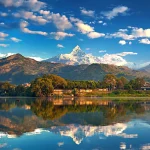
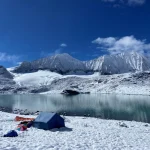
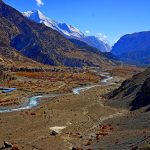
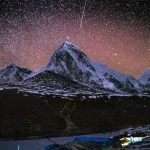


Great posting!!
Thank you very much! Really appreciated!